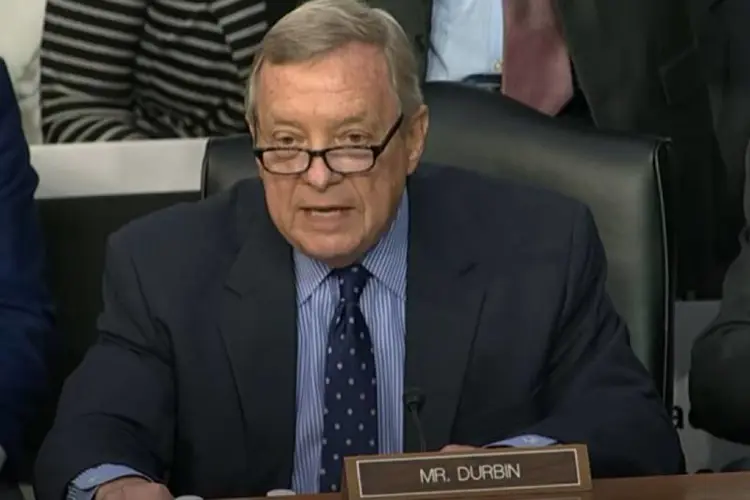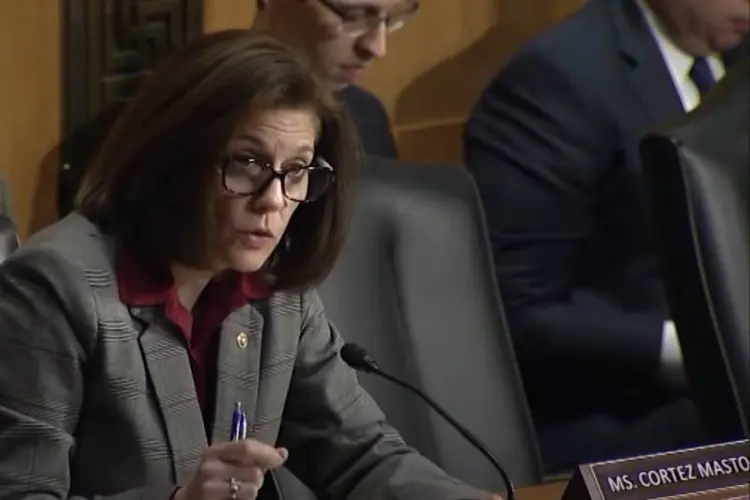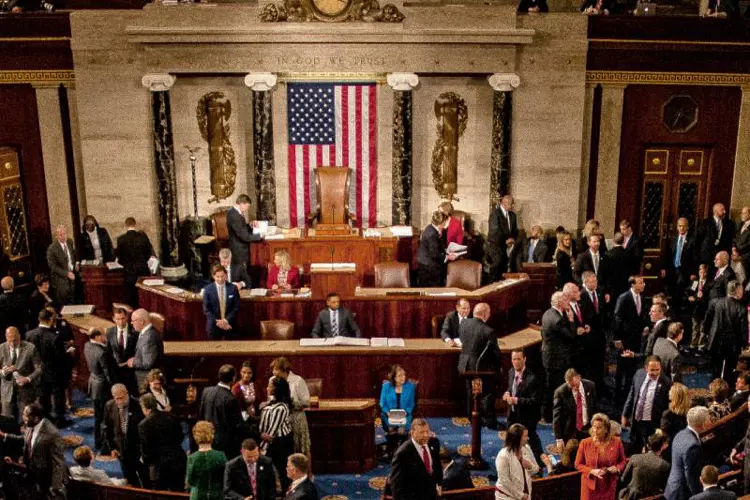Congressional Democrats' soon-to-be-finalized tax and spending bill includes language adapted from Senator Dick Durbin’s proposed Tobacco Tax Equity Act and another similar bill, which aims to equalize taxes on all consumer nicotine products. The goal is to make vaping as expensive as smoking—despite the widely recognized health benefits of switching to e-cigarettes.
The House Ways and Means Committee approved inclusion of the tax language over the weekend. The proposed tax measures will be debated later this week. If the bill is passed, it will be through a procedure called budget reconciliation.
Budget reconciliation is a process in Congress by which legislation dealing with spending, revenue or the debt limit can be passed with a simple majority of both houses. In the current equally divided Senate, all Republicans could oppose the tax and spending bill—as it appears they will—and Democrats would still be able to pass it with 50 votes plus the Vice President’s tie-breaking vote.
If the language remains in the bill and the bill is passed into law, the cost of a 60 milliliter bottle of 12 mg/mL e-liquid would increase by $40. A one-liter bottle of 100 mg/mL DIY nicotine—if it could even be found—would be taxed at $5,561. The proposed law actually taxes a JUUL pod at a higher rate ($2.25) than a pack of cigarettes ($2.00).
The inspiration for the proposed nicotine tax's rate—$100.66 per 1,810 milligrams of nicotine—comes from a 2019 bill introduced by a bipartisan duo of New York House members. But the language in the reconciliation bill would set the tax at double the rate the 2019 nicotine bill would have imposed, because the nicotine tax is indexed to the manufacturer’s tax on cigarettes, and the cigarette tax rate is also doubled in the new legislation.
Such a tax would likely destroy what’s left of the independent vaping industry, and shift all bottled e-liquid to the growing black market. Further, it would encourage the creation of a truly dangerous DIY market in which individual vapers with little mixing experience would import pure (1,000 mg/mL) nicotine base—a product dangerous to handle even for experienced nicotine mixers.
Durbin’s bill was supposed to create price parity between different kinds of nicotine products—a bad enough idea—but in reality the new tax bill treats cigarettes generously, by underestimating the nicotine they contain. The base rate for cigarettes under the proposed language would be $100.66 per 1,000 cigarettes (double the current rate)—or about 10 cents per cigarette ($2 per pack).
By that logic, the authors seem to suggest that each cigarette contains 1.81 milligrams of nicotine. But, although most smokers only absorb 1-2 mg of nicotine from each cigarette, cigarettes actually contain about 10 mg of nicotine. The tax language is based on a cigarette’s estimated nicotine yield—the amount absorbed in the bloodstream of an average smoker—not its actual content. If they were taxed in line with the proposed nicotine vape tax—which is based on content—the tax on cigarettes would be six times higher.
The tax proposed for vaping products measures the actual amount of nicotine in the e-liquid—not the amount absorbed into a vaper’s bloodstream. The tax is about 5.5 cents per milliliter, an amount the tax proposal’s authors apparently chose without any serious research. It would apply to all nicotine products, including synthetic nicotine.
The Democratic lawmakers that wrote the tax language also did no research on its likely effects. A study published just weeks ago by the National Bureau of Economic Research showed that a tax such as the one Durbin proposed would increase cigarette smoking and weaken public health. Cigarettes and vaping products are economic substitutes. When one increases in price relative to the other, users migrate to the relatively less expensive product.
That conclusion aligns with recent recommendations from 15 former presidents of the Society for Research on Nicotine and Tobacco. They wrote that taxing cigarettes “heavily” and vaping products “modestly” would “encourage adult smokers to quit smoking or to switch to less expensive e-cigarettes,” and discourage vaping uptake by adolescents.
Cigarettes are the most easily available nicotine product. When vaping products become scarce—because of taxes or FDA flavor restrictions or a ban on shipping by U.S. Mail—many longtime smokers will relapse. The new tax parity proposal doubles the federal tax on cigarettes too, but it's a lot easier to pay an extra dollar for a pack of Marlboros than to come up with an extra $20 for a bottle of e-liquid.
The proposed tax, like all so-called “sin taxes,” is regressive, meaning it would disproportionately punish poor and working-class Americans, who also make up the bulk of smokers and vapers. The sin tax concept isn't new, and it can be understood as a form of control exerted by the rich and powerful over the poor and powerless.
In theory, sin taxes are supposed to dissuade people from engaging in unhealthy activities like smoking. But when tobacco taxes increase, only a tiny percentage of the smoking population quits, which means the rest—if they can’t find cheaper black market products—pay the tax and have that much less income to feed their families and pay their bills. And sin taxes, of course, have no effect whatsoever on high-income tobacco users.
The tax proposal, if it gets the support of President Joe Biden, would be an egregious betrayal of Biden's campaign promise that he would approve no taxes that hurt those earning less than $400,000 a year. But for a vaper consuming 50 milligrams of nicotine a day, the Democratic tax increase would cost them an additional $1,003 a year—nearly three times the increase a pack-a-day smoker would pay on cigarettes.
The tax covers other low-risk nicotine products too, including smokeless tobacco and nicotine pouches. A pack of 20 nicotine pouches would be taxed $2.00, not including state excise and sales taxes. Indeed, the very idea of creating tax parity between low- and high-risk nicotine and tobacco products is an attack on the concept of harm reduction itself.
The tax and spending bill has received pushback from some moderate Democrats, like West Virginia Sen. Joe Manchin and Arizona Sen. Kyrsten Sinema. But so far the objections seem focused on the price tag of the bill, not the tax proposals. Democrats supporting the tobacco tax hikes claim the tobacco taxes will increase federal revenue by $96 billion.
The likely outcome, barring massive outcry from vapers, tobacco users and harm reduction advocates, is that the spending portion of the bill will be trimmed to satisfy the skittish moderates while the tax hikes remain. Biden is staking much of his political capital on passage of the spending bill, because it contains most of his domestic infrastructure, healthcare, and climate change initiatives. But it is possible he could object to the tobacco tax as a violation of his promise not to tax low- and middle-income Americans, as he did with a proposed gasoline tax.
For vapers hammered nearly into submission by the FDA’s refusal to authorize any flavored products, the new bill looks like another nail in an already nail-filled coffin.
The Freemax REXA PRO and REXA SMART are highly advanced pod vapes, offering seemingly endless features, beautiful touchscreens, and new DUOMAX pods.
The OXVA XLIM Pro 2 DNA is powered by a custom-made Evolv DNA chipset, offering a Replay function and dry hit protection. Read our review to find out more.
The SKE Bar is a 2 mL replaceable pod vape with a 500 mAh battery, a 1.2-ohm mesh coil, and 35 flavors to choose from in 2% nicotine.
Because of declining cigarette sales, state governments in the U.S. and countries around the world are looking to vapor products as a new source of tax revenue.
The legal age to buy e-cigarettes and other vaping products varies around the world. The United States recently changed the legal minimum sales age to 21.
A list of vaping product flavor bans and online sales bans in the United States, and sales and possession bans in other countries.


















